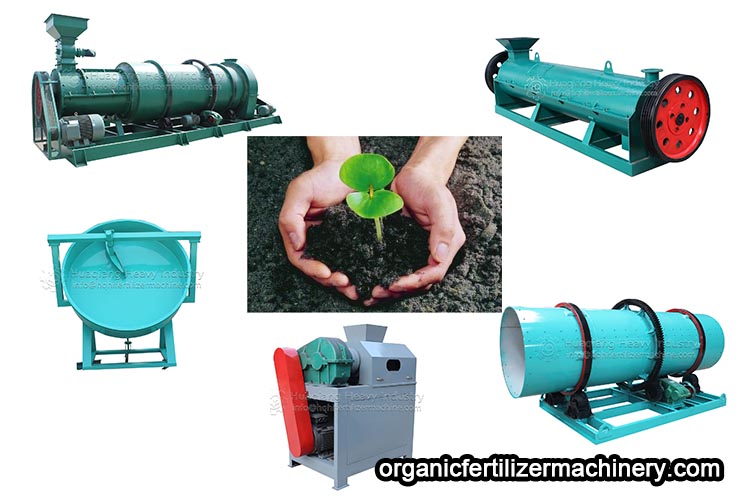In an organic fertilizer production line, the granulation machine is the core equipment that determines the quality of the finished product and production efficiency. Faced with a variety of models on the market, choosing the right equipment for one's specific needs has become a key challenge for many producers. The following outlines a scientific selection logic based on core requirements.

First, understanding the characteristics of the raw materials is fundamental. Different raw materials have significantly different moisture content, viscosity, and particle size, directly affecting the granulation effect. If the raw material is high-moisture organic waste such as chicken manure or pig manure, with a moisture content above 60%, a disc granulator or rotary drum granulator should be prioritized. These types of equipment are highly adaptable to high-moisture raw materials and reduce adhesion and clogging through rolling granulation. If the raw material is low-moisture, low-viscosity materials such as straw powder or mushroom residue, an extrusion granulator is more suitable. It uses high-pressure extrusion molding, requiring no additional water and achieving a high molding rate.
Second, matching the production capacity is crucial. For small family farms or pilot projects with a daily production capacity of 5-10 tons, a small flat die pelleting machine is a good choice. It offers low equipment cost, a small footprint, and easy operation and maintenance. For medium-sized production enterprises with a daily production capacity of 20-50 tons, a rotary drum granulator is a cost-effective option, combining capacity and stability. For large-scale production bases with a daily production capacity exceeding 100 tons, a complete disc granulation production line is recommended, along with auxiliary equipment such as dryers and coolers, to achieve continuous and efficient production.
Furthermore, pay attention to finished product requirements and environmental standards. If producing spherical organic fertilizer, disc granulators produce granules with high sphericity and good market acceptance. If high granule strength and resistance to pulverization are desired, extrusion granulators offer superior compressive strength. Simultaneously, with increasingly stringent environmental requirements, equipment with good sealing and compliant dust emissions should be selected to avoid secondary pollution during production.
Finally, comprehensively consider costs and services. In addition to equipment purchase costs, long-term costs such as energy consumption, replacement of wear parts, and maintenance must also be calculated. Prioritize manufacturers with a good reputation and comprehensive after-sales service to ensure timely technical support in case of equipment failure and minimize production downtime losses.
In short, the selection of organic fertilizer granulation machines should be based on three core factors: raw materials, production capacity, and finished product, while also considering cost and environmental protection. Only then can you choose the most suitable equipment to safeguard your organic fertilizer production.